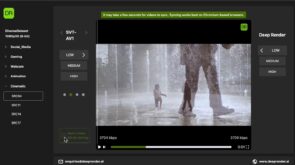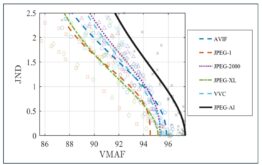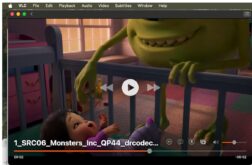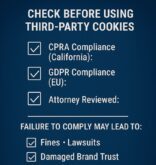Google Documents is a free service from Google that includes word processing, spreadsheet and presentation applications. If you have a Google mail account, you can access these apps, enter data online and then access it from anywhere. You can also share these documents with others.
I’m using Google Docs in two distinct scenarios. One is collaborative work. Two separate jobs this year involved producing multiple video tutorials. Creating a shared spreadsheet on Google Documents allows the client/collaborator to have a real time view of what I’m working on, and lets me gain (and document) their approvals. Before, we had to send spreadsheets back and forth, leading to the inevitable version problems. You can see one of the shared spreadsheets (v2b index) in the figure below.

The second application is script writing and narrating on different computers. I now have an isolated recording station for recording narration. But it’s cramped and the computer in there doesn’t have all the applications that I’m recording about. So in many instances, I create my narration (or narration outline) on one computer, and then record back in my recording area.
I don’t have Microsoft Word on all my computers, and Notepad or TextEdit on the Mac are less convenient than Google Documents – it’s so nice not to have to save a file, then get it to the recording station. All my computers are online, so I can write the script where ever I am and then access it on my recording station.
I still use Word for most serious documents, or wherever portability isn’t an issue. But for simple documents, or collaborative works, Google Documents provides sufficient functionality and much greater convenience. We’ve all been hearing about Rich Internet Applications (RIAs) for awhile; I’m not sure Google Documents is rich enough to quality, but the ease of access and utility proves the value of the concept for me.
If you’ve been following the Microsoft vs. Google operating system skirmish, you’ve probably heard that Microsoft will release a free online version of Office sometime soon, presumably, at least in part, to combat the erosion caused by Google Documents. It will be interesting to see how Microsoft walks the line between giving enough away to compete with Google Documents without eating into sales of the Office Suite itself. It’s nice to have a cash cow like the Office Suite, but it’s hell when it starts to slip away.
 Streaming Learning Center Where Streaming Professionals Learn to Excel
Streaming Learning Center Where Streaming Professionals Learn to Excel








